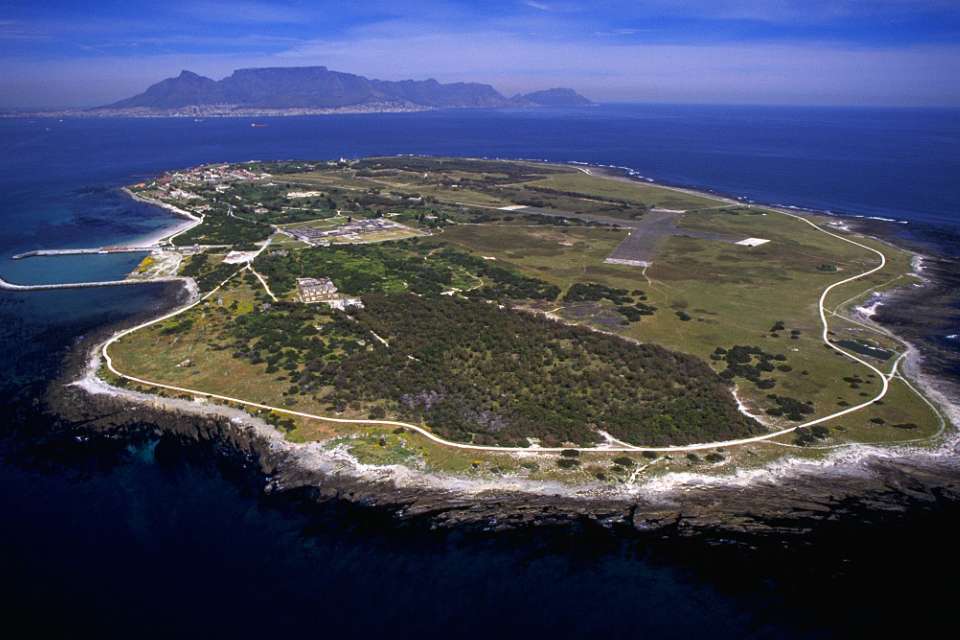Welcome to Robben Island, a place of immense historical significance located off the coast of Cape Town, South Africa. This iconic island is not only a symbol of resilience but also a beacon for tourists seeking meaningful experiences.
Known worldwide for its association with the struggle against apartheid and its connection to Nelson Mandela, Robben Island offers a profound exploration of South Africa’s history and the triumph of freedom over oppression.
As a UNESCO World Heritage Site, Robben Island attracts thousands of visitors each year who are drawn to its rich past and compelling stories. From its role as a prison during the apartheid era to its remarkable transformation into a museum, this island holds a special place in our hearts and minds.
Join us as we delve into the fascinating history and significance of Robben Island, explore the tours and experiences it offers, and learn about the efforts of the Robben Island Museum in preserving its heritage. Together, let us celebrate this remarkable place and honor the individuals who fought for justice and equality.
Key Takeaways:
- Robben Island is a symbol of resilience and a beacon for tourists seeking meaningful experiences
- The island played a significant role in the struggle against apartheid and is associated with Nelson Mandela
- Visiting Robben Island offers a unique and poignant experience, with guided tours and the opportunity to explore historical sites
- The Nelson Mandela Gateway is the departure point for the ferry to Robben Island
- The Robben Island Museum preserves the history and heritage of the island
History and Significance of Robben Island

Robben Island has a rich and complex history that spans over 500 years. It was first used as a place to isolate certain groups of people in the late 17th century. In the following centuries, it also served as a prison, a hospital for socially unacceptable groups, and a military base.
However, it is most famous for its role as a prison during the apartheid era, when political prisoners were unjustly held here. The significance of the island lies in its association with the struggle against apartheid and the triumph of democracy and freedom over oppression.
Visiting Robben Island – Tours and Experiences
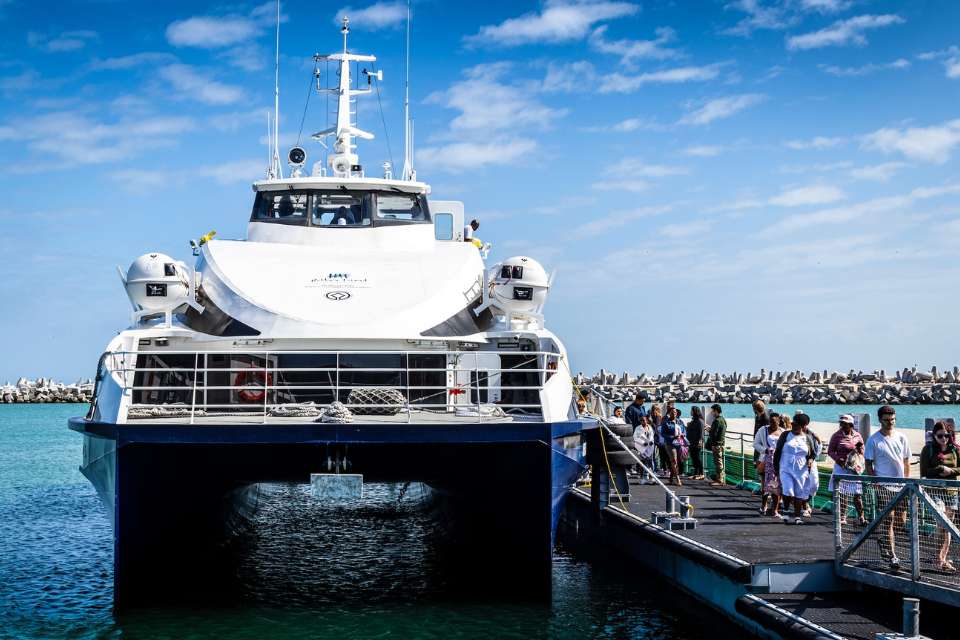
Visiting Robben Island is a unique and poignant experience that offers a glimpse into South Africa’s rich history. To embark on this memorable journey, join one of the guided tours that depart from Cape Town’s picturesque waterfront.
Tours typically last around 3.5 hours, providing ample time to explore the various historical sites on the island. As you embark on the ferry trip to Robben Island, take in the breathtaking views of the coastline and Table Mountain, setting the stage for the heartfelt experience that awaits.
Once on the island, you will have the opportunity to immerse yourself in its storied past. Explore the maximum security prison, where political prisoners were unjustly held during the apartheid era.
Walk through the island’s graveyard, a solemn reminder of the sacrifice and resilience of those who fought for justice and equality. Visit the disused lime quarry, where prisoners toiled under harsh conditions. And don’t miss the chance to step inside Nelson Mandela’s cell, where he spent 18 years of his life.
What sets these tours apart is the presence of former political prisoners who now serve as tour guides. These remarkable individuals share their personal stories, offering an intimate and authentic perspective on the island’s history. Their firsthand accounts add an extra layer of depth to the experience, making it all the more meaningful.
Come and enjoy a journey to Robben Island, where history comes alive, and the spirit of resilience and hope shines through. Immerse yourself in the captivating stories of the past and pay homage to those who fought for a better future. Book your tour today and embark on a truly unforgettable adventure.
Getting to Robben Island – Nelson Mandela Gateway
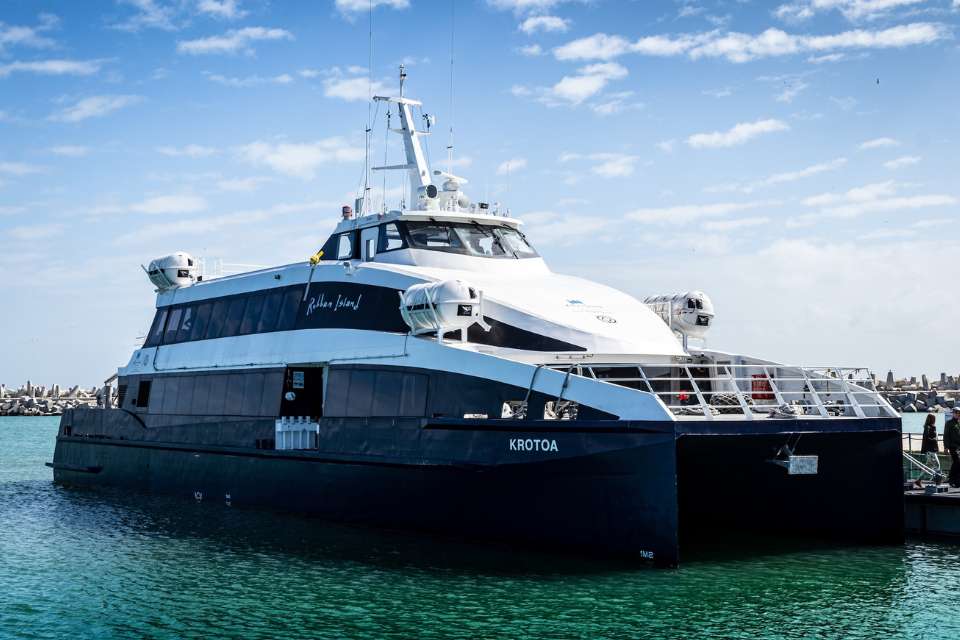
The journey to Robben Island begins at the iconic Nelson Mandela Gateway, located at the vibrant V&A Waterfront in Cape Town. This gateway serves as the starting point for the tours and offers various amenities, including ticketing and information counters, ensuring a smooth and convenient experience for visitors.
To make the most of your visit to this historically significant island, we recommend booking your tour in advance, especially during peak tourist seasons when the island can get busy. This will help you secure your spot and ensure a seamless trip to Robben Island.
The ferry trip from the Nelson Mandela Gateway to Robben Island takes approximately 30 minutes, providing ample time to soak in the scenic views of the picturesque coastline and the majestic Table Mountain.
As you cruise across the sparkling waters, you’ll be captivated by the natural beauty that surrounds the island, setting the stage for the profound journey that awaits.
Immerse yourself in the history and symbolism of Robben Island by embarking on this unforgettable ferry trip, where every moment is filled with anticipation and the promise of a meaningful experience.
Robben Island Museum – Preserving the History
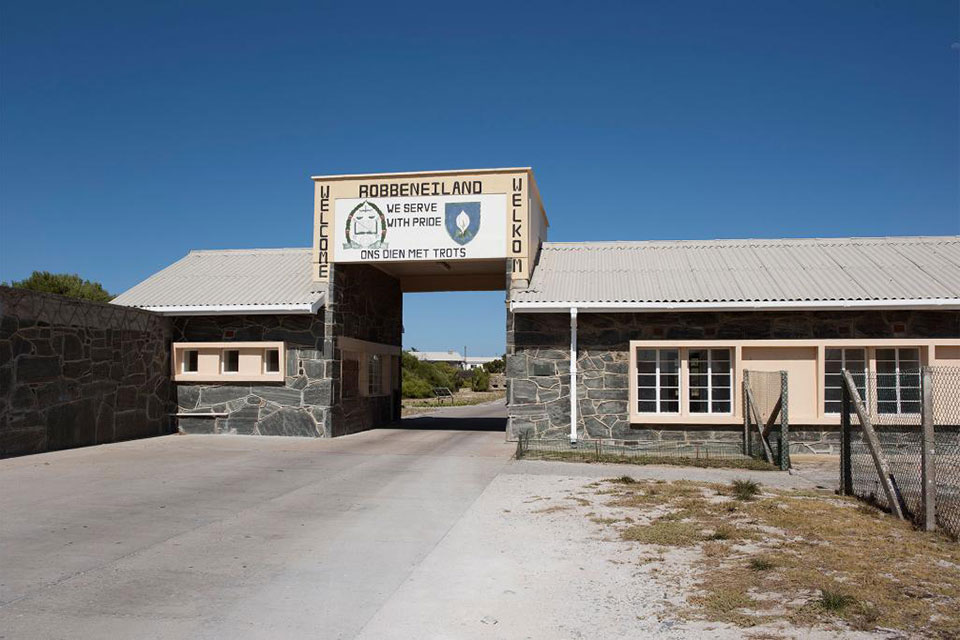
At the museum, visitors can explore a fascinating collection of historical artifacts that offer a tangible connection to the past. These artifacts serve as a powerful reminder of the hardships endured by political prisoners during the apartheid era and the battles fought for justice and equality.
In addition to preserving and displaying these artifacts, there are also educational programs for visitors of all ages. Through interactive exhibits, guided tours, and engaging workshops, they aim to educate and inspire future generations about the importance of human rights and social justice.
By witnessing the stories of those who were imprisoned here, we can create a better future by promoting empathy, understanding, and respect for one another.
Robben Island – A UNESCO World Heritage Site
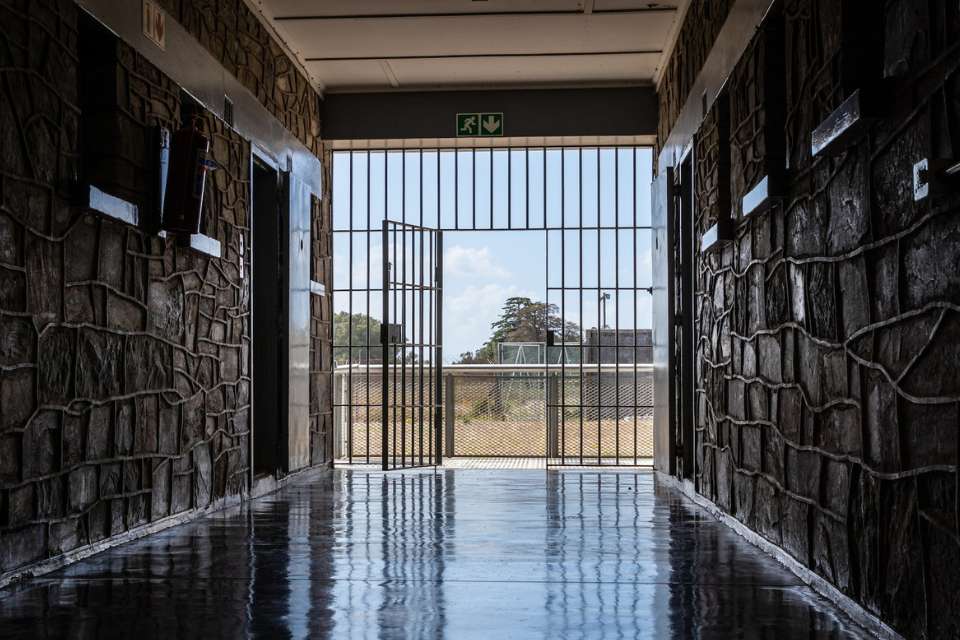
Robben Island, located off the coast of Cape Town, South Africa, holds significant cultural importance and has been recognized as a UNESCO World Heritage Site since 1999. This prestigious designation acknowledges the island’s historical and cultural significance, making it an essential destination for travelers and history enthusiasts.
As a World Heritage Site, Robben Island represents more than just a physical location. It serves as a symbol of triumph, showcasing the resilience of the human spirit in the face of oppression and racism.
The island’s history reflects the profound struggle for democracy and freedom, emphasizing the importance of justice and equality.
Preserved and protected, Robben Island symbolizes the collective commitment to remember and learn from the past. Its recognition on the global stage ensures that future generations can understand and appreciate the unique historical and cultural value it holds.
A visit to Robben Island offers a deeply meaningful experience, providing an opportunity to connect with the island’s cultural significance firsthand. It serves as a reminder of the sacrifices made by individuals who fought for a better future, leaving an indelible mark on South Africa’s history.
Conclusion
Robben Island, located off the coast of Cape Town, South Africa, is a place of immense historical significance. As a symbol of resilience and a beacon for tourists seeking meaningful experiences, it holds a special place in the hearts of those who visit.
From its role as a prison during the apartheid era to its association with Nelson Mandela, the island tells a powerful story of struggle, triumph, and the pursuit of justice.
Today, Robben Island stands as a UNESCO World Heritage Site, honoring its historical significance and cultural value. It serves as a reminder of the power of humanity’s pursuit of freedom and equality.
A visit to Robben Island offers a unique opportunity to learn about South Africa’s history and pay tribute to the individuals who sacrificed for a better future.
For tourists, Robben Island is not just a destination but an experience that holds symbolic history. It allows us to witness firsthand the sites where history was made, including the maximum security prison and Nelson Mandela’s cell.
Through guided tours and the stories shared by former political prisoners, we gain a deeper understanding of the struggles faced and the resilience displayed.
Whether you’re a history enthusiast or simply seeking a meaningful experience, a visit to Robben Island is a must. It allows us to immerse ourselves in the rich cultural heritage of South Africa and pay homage to those who fought for justice and equality.
Robben Island truly stands as a testament to the indomitable human spirit and the importance of preserving our shared history for future generations.
FAQ
What is the historical significance of Robben Island?
Robben Island holds immense historical significance as a symbol of resilience and a beacon for tourists seeking meaningful experiences. It became famous for its role in South Africa’s struggle against apartheid and its association with Nelson Mandela, who was imprisoned here for 18 years.
How can I visit Robben Island?
Visiting Robben Island is possible through guided tours that depart from Cape Town’s waterfront. The tours typically last around 3.5 hours and include a ferry trip to and from the island.
What can I see on a tour of Robben Island?
During a tour of Robben Island, you can explore various historical sites, including the maximum security prison, the island graveyard, the disused lime quarry, and Nelson Mandela’s cell.
Many tour guides are former political prisoners who share their personal stories, adding an extra layer of authenticity to the experience.
Where does the ferry to Robben Island depart from?
The ferry to Robben Island departs from the Nelson Mandela Gateway at the V&A Waterfront in Cape Town.
Do I need to book in advance to visit Robben Island?
It is advised to book your tour in advance, especially during peak tourist seasons, as the island can get busy.
What is the Robben Island Museum?
The Robben Island Museum is responsible for preserving the history and heritage of the island. It houses a collection of historical artifacts and offers educational programs for visitors of all ages.
Why is Robben Island a UNESCO World Heritage Site?
Robben Island was inscribed as a UNESCO World Heritage Site in 1999 for its cultural significance. It represents the triumph of democracy and freedom over oppression and racism.

